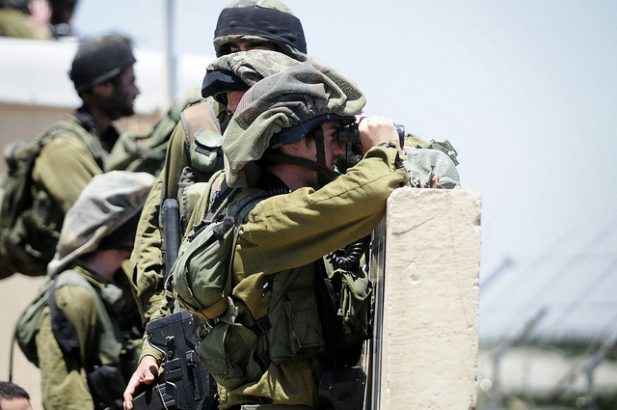Sima Shine and Ezra Friedman argue that Israel’s current security environment offers it unique opportunities to secure itself against future strategic challenges and bring it closer to the Sunni Arab world.
Israel’s 70th anniversary is a unique opportunity for taking stock of the strategic changes in the region and the security challenges it faces. Israel’s strategic posture from the 1950s to the 1970s was shaped on the one hand by the huge animosity of its Arab neighbours, their unwillingness to recognise its right to exist, and their willingness to confront Israel in full-scale wars. On the other hand, through close relations with the non-Arab states in the region such as Turkey, Iran and Ethiopia, the ‘periphery strategy’ of Israel’s first Prime Minister, David Ben-Gurion, allowed Israel to balance the hostility of the Arab states by creating close relations with non-Arab, secular countries in the wider region, who were both close to the US and shared other strategic interests with Israel. The most obvious fruits of this strategy were Israel’s very close security relations and economic cooperation with Iran and Turkey during those decades.
Turkey
Although Turkey had originally rejected the UN Partition Plan of November 1947, it was quick to recognise Israel in 1950. The two countries developed decades of very close diplomatic and security relations that included joint military exercises, arms sales of Israel’s advanced technologies to Turkey, and mutual strategic dialogues. This relationship reached high levels of coordination on military, diplomatic and political levels.
The rise of the Justice and Development Party (AKP) in the early 2000s led by current President Recep Tayyip Erdogan, a fierce supporter of both the Muslim Brotherhood and Palestinian cause, caused Turkey to gradually distance itself from Israel. As a result, the once close security cooperation between the countries has eroded, with increased tensions that climaxed during the Mavi Marmara Flotilla Incident in 2010, when activists attempted to break through the Israeli navy’s blockade of the Gaza Strip. This led to several Turkish citizens being killed as well as Israeli soldiers being wounded and to the subsequent downgrading of diplomatic relations between the two states. Even though diplomatic relations have since resumed and economic cooperation continues, the escalation of clashes on the Gaza border have led to increased harsh and provocative rhetoric from Erdogan concerning Israel, which in turn has led to tit for tat expulsion of diplomats which has increased tensions further. As a result, the relations between the two countries remains deeply strained.
Iran
During the years of the Pahlavi Dynasty, Iran had very close – though partially secret – political-security relations with Israel. Despite the absence of formal diplomatic relations, which never fully developed due to strong pressure from the Arab countries, from the 1960s until the 1979 Islamic Revolution several Israeli prime ministers visited Iran and high-ranking political and military Iranian officials paid visits to Israel. There was also widespread economic cooperation between the two countries, including the important project of an Eilat to Ashkelon oil pipeline which was used to transfer Iranian crude oil that was shipped to Europe via Eilat and the Mediterranean Sea.
The big change occurred following the Islamic Revolution headed by the Ayatollah Ruhollah Khomeini. One of his very first acts after the hostile takeover of the American Embassy was to turn what had been the de-facto Israeli Embassy in Tehran into the embassy of the Palestinian Liberation Organisation (PLO), led by Yasser Arafat. This would signal the beginning of what is now four decades of animosity, conflict and war by proxy between Iran and Israel.
The struggle with the Arab World
Israel’s Arab neighbours did not accept the legitimacy and establishment of the Jewish state and began a decades-long campaign to weaken and destroy it, reflected in major wars as well as terror operations. The culmination of the struggle was the Six-Day War that resulted in Israel conquering territories formerly held by Syria, Egypt and Jordan. The trauma created by this war in Israel’s neighbours translated into what became the decision of the Arab summit in Khartoum (1967) – the so-called ‘Three No’s’ of ‘No recognition, No negotiations and No peace’ with the State of Israel. It took one more harsh war – the 1973 Yom Kippur War (Egypt & Syria) – to open a new era of negotiations for peace agreements with Egypt (1979) and with Jordan(1994).
The main conclusion from these processes is that a strong Israel that proves to its Arab neighbours that it cannot be defeated by force can lead to a process of mutual compromise that will result in coexistence and acceptance of Israel.
The Israeli-Palestinian conflict
In contrast to the Arab countries, the struggle with the Palestinians has taken a different shape. In the absence of an independent territorial base, the Palestinians first tried to establish a base in Jordan, from which they were expelled in 1970, and then in Lebanon, from where the Palestinian fighting force and its leadership was expelled to various Arab countries following the first Lebanon war (1982). Gradually, these defeats led to the evolution in the Palestinian position and subsequently to the Oslo Accords in 1993.
The ‘Arab Spring’ and its implications
The uprisings and upheaval within the Arab World in the last decade are unprecedented in their scope and depth, and the final results are as yet unknown.
After several years of instability with the removal of long-time President Hosni Mubarak (2011) and the rise and fall of the Muslim Brotherhood under Mohammad Morsi (2012), Egypt has achieved relative political stability under the leadership of President Abdel Fattah al-Sisi (2014). During all these political changes, the peace treaty between Israel and Egypt has remained intact. In recent years there is has been growing security cooperation in the fight against ISIS in Sinai that has even led to alleged Israeli airstrikes against ISIS in Sinai in coordination with Egypt’s military campaign.
Until the beginning of the civil war, Syria constituted the biggest and best equipped military on Israel’s borders. Today Syria’s military is broken, it has been forced by the international community to cede most of its chemical weapons, and is totally dependent on foreign actors for its continued survival. Iraq is currently attempting to pick up the pieces after three years of intense warfare against ISIS. Libya is divided along tribal lines without a central government accepted by the warring parties. Yemen is in the midst of a total civil war, intensified by regional actors coupled with the one of the most serious humanitarian crises of the 21st century.
These upheavals have not harmed the Arab monarchies that continue to enjoy public legitimacy. What worries those countries – especially Saudi Arabia and the Gulf states – is the Iranian threat, both nuclear and ballistic, as well as its regional aspirations. This threat has become a unifying factor between Israel and those Arab Sunni countries.
Iranian regional policy – potential implications
The dramatic weakening within the Arab World has resulted in an increased Iranian presence and influence across the region. Over the last two decades, Iran has benefited from the defeat of the Taliban in Afghanistan, Saddam Hussein in Iraq and more recently of ISIS in Iraq and Syria. In all of these cases, Iran took advantage in order to maximise its ability to influence events on the ground. In Iraq it has strengthened the Shiite majority through various means, including the use of Shia militias it helped to create and continues to support. In Syria, Iran has supported the Assad regime in its fight for survival, by ordering several thousand fighters from Hezbollah and many more thousands of Shia militias (from Iraq, Afghanistan and Pakistan) to join the war. These Iranian activities in Iraq and Syria have the potential to create a territorial continuity between Iran and the Mediterranean, allowing for a land corridor, which directly links Iran to Hezbollah in Lebanon. This has become one of the major concerns for Israeli security today.
Within this context the Iranian military presence in Syria, and its efforts to establish a new front against Israel, is equipped with long range missiles and unmanned aerial vehicles (UAVs) which has led to several clashes that have the potential for further escalation.
Prospects and conclusions
As Israel enters into its 70th anniversary, it is in the best strategic position since its establishment. While Hezbollah and Hamas pose military threats and have the capacity to cause casualties and damage, they do not pose existential threats. Nor does Israel currently face any other existential military threats.
Still, it faces two different strategic and long-term concerns: The first one is Iran’s nuclear ambitions that may take a new course following the US decision to leave the Joint Comprehensive Plan of Action (JCPOA) and possible future Iranian decision to restart the enrichment process. This situation may put Israel in a difficult dilemma, especially if Iran shortens its breakout time towards a nuclear device.
The second major long-term strategic challenge facing Israel is the continued lack of progress on a final-status settlement between Israel and the Palestinians. This is a major polarising issue within Israeli society as well as an obstacle to widespread normalisation of relations with the Sunni Arab world. While the Palestinian issue has diminished in importance to the Arab countries, primarily due to their own domestic instability and external threats (Iran & terrorism), the Arab world’s long-term commitment to the Palestinian cause will continue to prevent Israel from engaging publicly with both the wider Arab and Muslim world, including the normalising of relations with the populations of the ‘peace countries’ – Egypt and Jordan.
Israel should use the current situation to improve its standing for the coming decades; on one hand continue to be well prepared to face military challenges that may arise on its northern border and the Gaza Strip, and prepare for the possible consequences of the US leaving the JCPOA. However, at the same time it should search for diplomatic opportunities on all our fronts, especially regarding the need to separate – preferably via negotiations – from the Palestinians.
































